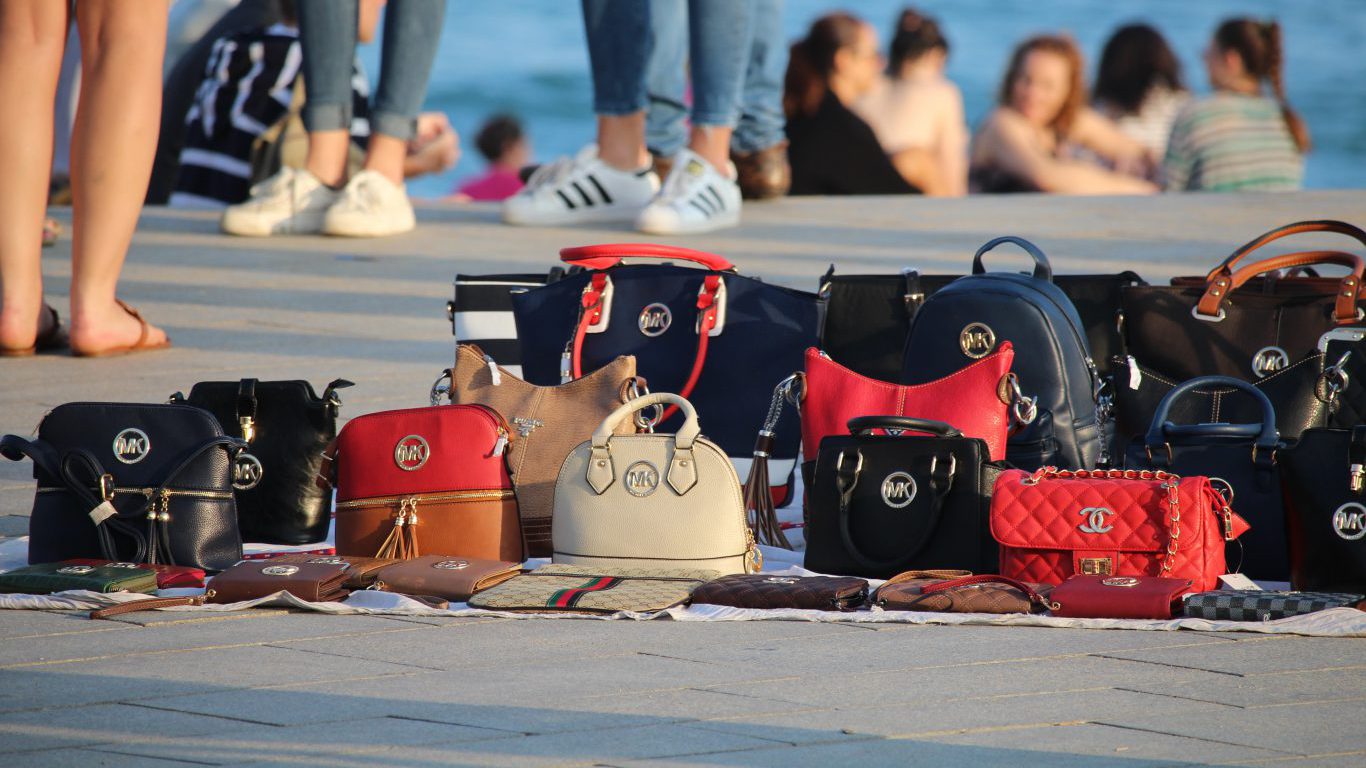Companies and Brands
Trade War Politics Don't Matter to Counterfeiters

Published:
Last Updated:

President Donald Trump has claimed that “trade wars are good and easy to win.” There are plenty of economists and pundits who disagree with that statement. There is one group, however, that would certainly agree: counterfeit goods makers.
The tariffs that the United States has imposed on Chinese imports have the effect of raising the cost to consumers of those goods. How will they respond? By looking for the same or similar goods at a lower price. And if they find a preferred brand at a significantly lower price, they’ll buy it, presumably unaware that it is a fake.
In 2013, the global trade value of imported counterfeit and pirated (stolen) goods totaled nearly $500 billion, according to an Organisation for Economic Co-operation and Development (OECD) report. The country that produced 63.2% of those fakes? China. Hong Kong, a Chinese special administrative region, accounted for 21.3% of all fakes that year, the second-highest total.
That OECD number, as large as it is, does not include online piracy, but primarily trademark and copyright breaches. Were those kicks really made by Nike or did someone manufacture a truckload of fakes to sell at half the price for twice the profit? The risks of the latter are growing as new manufacturing techniques, including 3D printing devices, make it more difficult to discern a fake.
Consumer watchdog The Counterfeit Report noted that tariffs may do many things, including protecting against intellectual property theft, “but the criminal $1.3 trillion counterfeit industry will flourish.” Counterfeiters no longer have to depend on shipping containers to get their counterfeit goods into the United States. An Amazon Marketplace reseller, for example, can ship goods directly from China to a consumer. If the goods are fake, Amazon takes no responsibility for reimbursement and the counterfeit goods seller certainly doesn’t either.
In early March, Amazon launched a new anti-counterfeiting initiative, “Project Zero,” that it said would help brands “drive counterfeits to zero” by giving them the tools to combat fakes. But those tools essentially require the brands to police counterfeiting themselves.
A growing and more insidious method of counterfeiting is lying to the U.S. Patent and Trademark Office (USPTO). According to a March report at CNBC.com, counterfeiters file a document with the USPTO reporting a change to the company’s email address. The USPTO makes the change and then the counterfeiter could give an online seller like Amazon that new email address. If Amazon checks USPTO records, it receives confirmation of the fake email address. Now, according to intellectual property attorney Dyan Finguerra-DuCharme, the stage has been set: “At that point Amazon gives them access to all of their tools, as the rightful brand owner. With access to those tools, they can take down legitimate product. And they can ensure that their own counterfeit product is sold on Amazon.”
Steve Shapiro, the unit chief for the FBI’s intellectual property rights group, told CNBC that counterfeit goods cost the U.S. economy some $600 billion a year, about 3% of U.S. GDP. He also commented on the email-change scam: “There are some that feel that as tariffs increase and other policy issues come along, that counterfeit is seen as an alternative route towards making additional profits.” If you want to avoid buying fake items, know which are the most counterfeited products in America.
The average American spends $17,274 on debit cards a year, and it’s a HUGE mistake. First, debit cards don’t have the same fraud protections as credit cards. Once your money is gone, it’s gone. But more importantly you can actually get something back from this spending every time you swipe.
Issuers are handing out wild bonuses right now. With some you can earn up to 5% back on every purchase. That’s like getting a 5% discount on everything you buy!
Our top pick is kind of hard to imagine. Not only does it pay up to 5% back, it also includes a $200 cash back reward in the first six months, a 0% intro APR, and…. $0 annual fee. It’s quite literally free money for any one that uses a card regularly. Click here to learn more!
Flywheel Publishing has partnered with CardRatings to provide coverage of credit card products. Flywheel Publishing and CardRatings may receive a commission from card issuers.
Thank you for reading! Have some feedback for us?
Contact the 24/7 Wall St. editorial team.